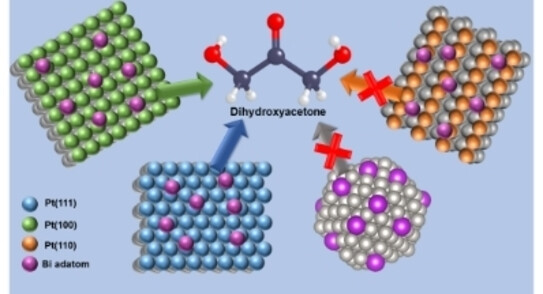

Ketone is an important chemical function in organic chemistry, characterized by the presence of the carbon-oxygen double bond, called carbonyl, linked to two organic radicals (image: CDMF)
The experiment of the Center for Development of Functional Materials was described in an article in the journal ChemCatChem.
The experiment of the Center for Development of Functional Materials was described in an article in the journal ChemCatChem.

Ketone is an important chemical function in organic chemistry, characterized by the presence of the carbon-oxygen double bond, called carbonyl, linked to two organic radicals (image: CDMF)
Agência FAPESP* – Research by the Center for Development of Functional Materials (CDMF), a FAPESP Research, Innovation, and Dissemination Center (RIDC) based at the Federal University of São Carlos (UFSCar), has shown that platinum surfaces can produce ketone by oxidizing the secondary carbon of polyols.
Ketone is an important chemical function in organic chemistry, characterized by the presence of a carbon-oxygen double bond, called carbonyl, linked to two organic radicals. It is used as a solvent in enamels, greases, varnishes, and resins, as well as in the extraction of oils from vegetable seeds, in the manufacture of acetic anhydride, and in pharmaceuticals.
In the study, the selectivity for ketone formation increased, while the pure platinum surface modified with bismuth produced only oxidized C3 molecules on the primary carbon, the only surface to show an increase in activity due to the modification.
The paper, entitled “Electro-Oxidation of Polyols on Bi-Modified Pt in Acidic Media (HClO4). Understanding Activity and Selectivity Trends,” was published in the journal ChemCatChem.
According to Miguel Angel San Miguel Barrera, a researcher at the CDMF and one of the authors of the article, the aim of the experiment was to determine whether doping platinum electrocatalysts with elements such as bismuth alters the selectivity in the conversion of polyols into high added-value compounds. “Although there are some reports in the literature on platinum catalysts doped with bismuth, this work specifically demonstrates selectivity in the oxidation of glycerol,” he explains.
The results indicate that while the use of platinum dopants as catalysts does not increase activity in the oxidation of polyols such as glycerol, the technique can be crucial in directing the formation of specific compounds that can be used to convert low-value products from biomass into others with higher added value. Glycerol is a by-product of biodiesel production.
San-Miguel also commented that the next steps in the research, which is already underway, include studies with other dopants and polyols with longer carbon chains.
* With information from the CDMF Press Office.
Republish
The Agency FAPESP licenses news via Creative Commons (CC-BY-NC-ND) so that they can be republished free of charge and in a simple way by other digital or printed vehicles. Agência FAPESP must be credited as the source of the content being republished and the name of the reporter (if any) must be attributed. Using the HMTL button below allows compliance with these rules, detailed in Digital Republishing Policy FAPESP.





